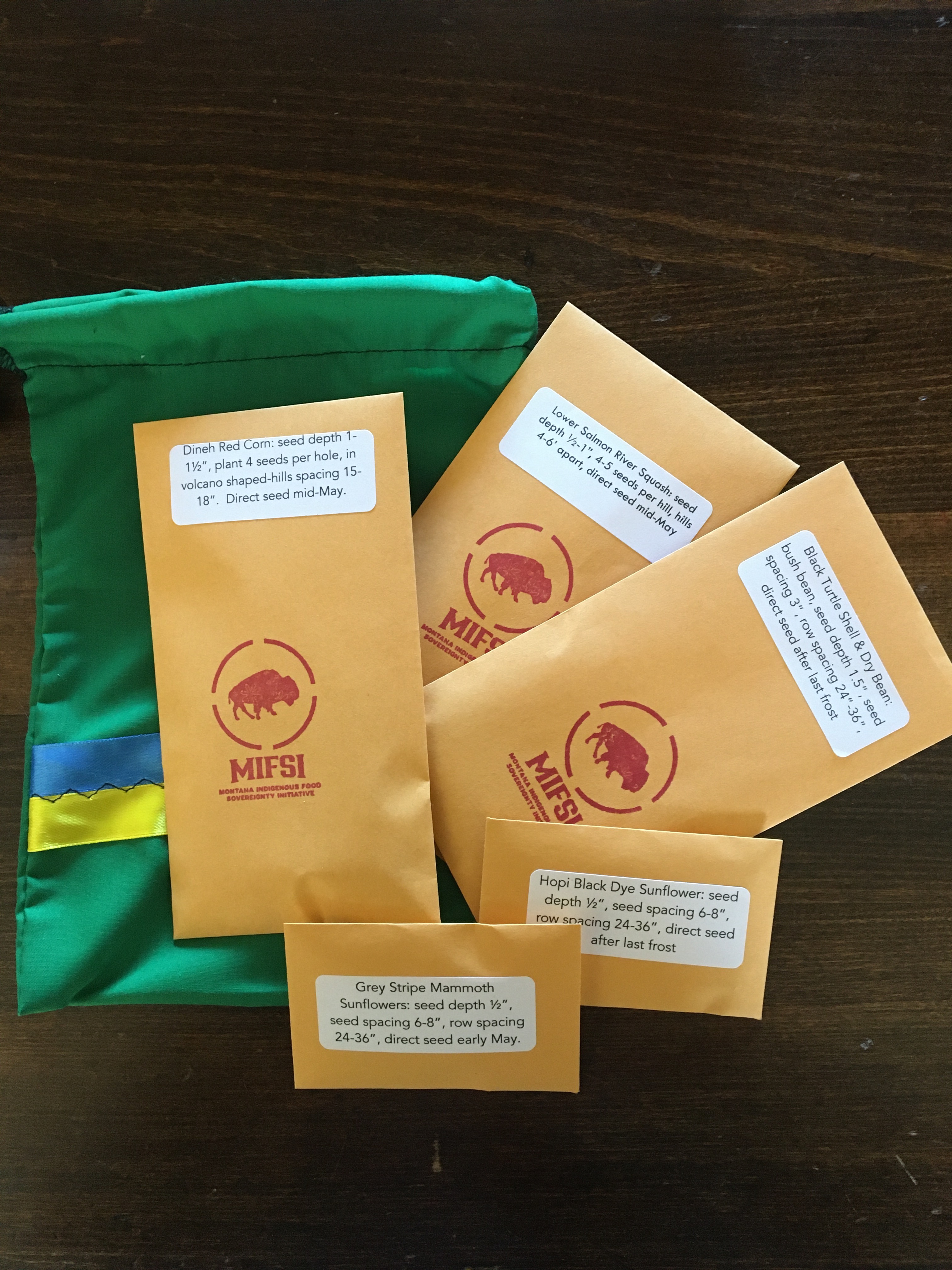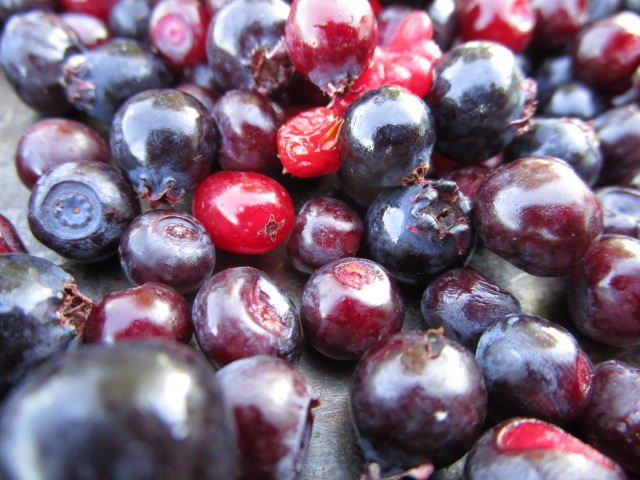Food Sovereignty
Indigenous food sovereignty is a direct expression of self-determination. Through enacting participation in Indigenous foodways we are not just enacting change, we are changing. Indigenous food sovereignty is more than the ability to provide ourselves and our relatives healthy and culturally appropriate foods. It is also a return to our Indigenous selves as we connect with the Land and collectively raise, harvest, process, share, and enjoy our foods. Through the process of returning to relationships with one another, the buffalo, and the Land (meaning the entire web of relationship), we overcome the despair brought by colonization. Through our collection expression of traditional ecological knowledge, alignment with the rhythm of the seasons of our home place and the gifts they bring, we determine our shared well-being.

Prior to Euro-American colonization of what we call Turtle Island (North America,) the Native Nations of the Northwestern Plains and Rockies shared a common food system—the buffalo culture seasonal round. The food system has often been misunderstood and over simplified through use of the term“hunter-gather,” and portrayed as a hand-to-mouth existence. More accurately, the buffalo culture food system was a highly complex way of life built upon Indigenous knowledge of a vast landscape, including an intimate understanding of animals, plants, season, and climate, passed down for millennia and retained as a matter of life and death. The annual seasonal round a series of movements on the land to hunt, fish, trade, harvest, and cultivate Indigenous foods. It was also critically embedded in our way of life which taught reciprocity, responsibility, and relationship—amongst other values which guided our sustainable relationship with the Land.
For more than 13,000 years, buffalo were the center of our way life. Grandfather Buffalo was the center of our food system and our kinship network of exchange (our economy), until 1883 when colonial forces nearly exterminated the buffalo. The buffalo culture lifeway was the longest sustained food system on North America. Grandfather Buffalo, at its center, was our sovereignty.

Restoration of food sovereignty is a top priority of Native Nations everywhere, and urgently so in this Changing Earth Time, in which the human-created imbalance in the web of life is impacting the well-being of all. It is the right of peoples to healthy and culturally appropriate foodproduced through ecologically sound and sustainable methods, and to define their own food and agriculture systems. (Declaration of Nyeleni, 2007) More than one hundred Native Nations have come home to the buffalo by restoring herds to their homelands. This is important not only towards re-establishing food sovereignty but as a matter of cultural continuity, in that buffalo are a relative vital to Indigenous identity, spiritual life, and the well-being of our homelands. Food is just the end product of the structure that is our way of life.
Colonization has impoverished the web of life to which Native people belong. The extractive colonial economy has exhausted the lands, drawn out life sources or “natural resources” for the sake of colonial economic development. This has led to ongoing issues of justice on the land and within the food system. Access to healthy and culturally appropriate foods in Indigenous communities are limited and in many communities altogether unavailable. Further, colonization of the Indigenous food system and distribution of replacement or commodity foods as well as the foods of the dominant culture, have negatively impacted Indigenous health and contributed to disproportionate rates of inflammatory disease.
Indigenous food sovereignty is an holistic project concerned with tending the well-being of the Land and the People.
